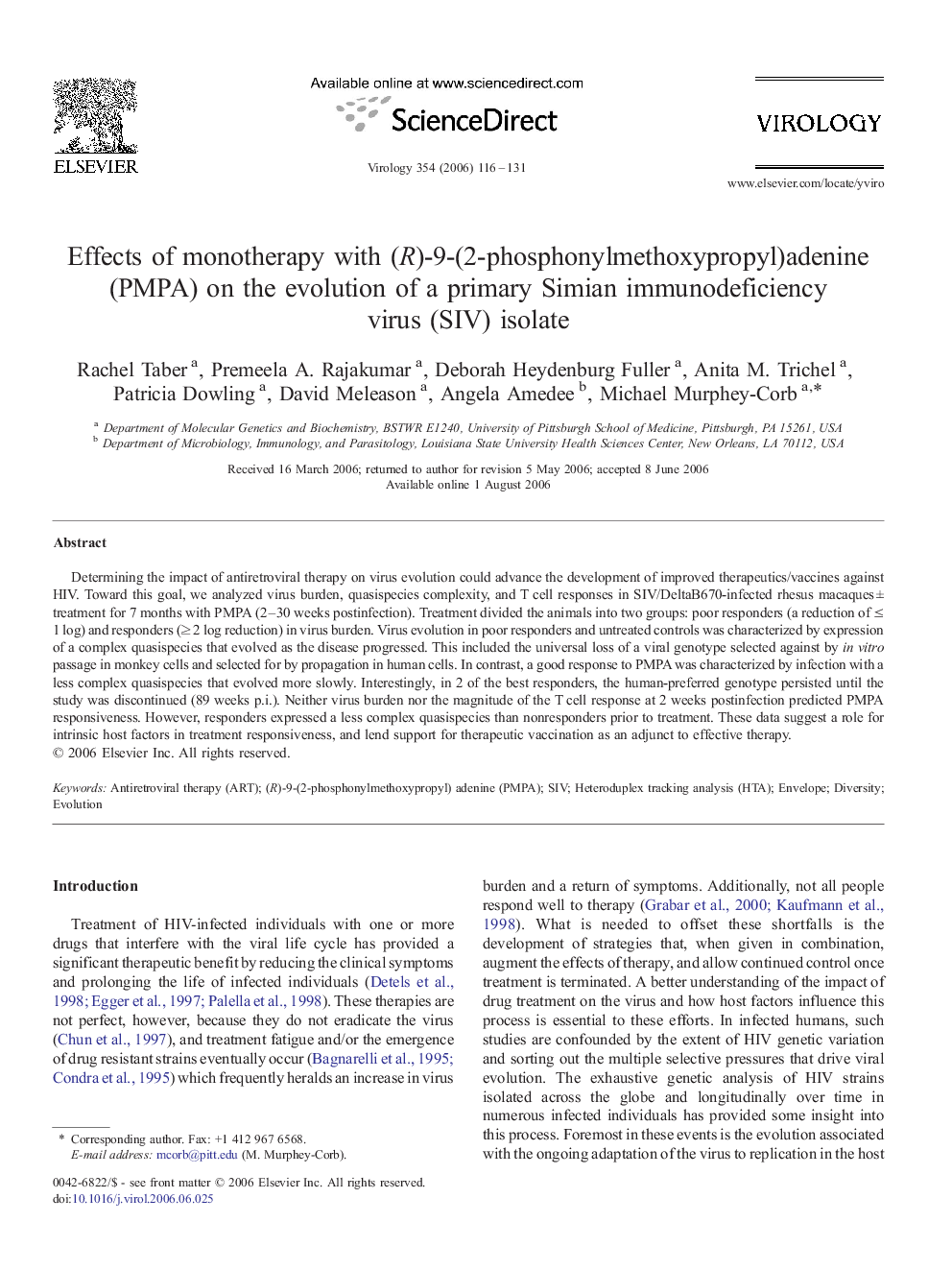| Article ID | Journal | Published Year | Pages | File Type |
|---|---|---|---|---|
| 3427204 | Virology | 2006 | 16 Pages |
Determining the impact of antiretroviral therapy on virus evolution could advance the development of improved therapeutics/vaccines against HIV. Toward this goal, we analyzed virus burden, quasispecies complexity, and T cell responses in SIV/DeltaB670-infected rhesus macaques ± treatment for 7 months with PMPA (2–30 weeks postinfection). Treatment divided the animals into two groups: poor responders (a reduction of ≤ 1 log) and responders (≥ 2 log reduction) in virus burden. Virus evolution in poor responders and untreated controls was characterized by expression of a complex quasispecies that evolved as the disease progressed. This included the universal loss of a viral genotype selected against by in vitro passage in monkey cells and selected for by propagation in human cells. In contrast, a good response to PMPA was characterized by infection with a less complex quasispecies that evolved more slowly. Interestingly, in 2 of the best responders, the human-preferred genotype persisted until the study was discontinued (89 weeks p.i.). Neither virus burden nor the magnitude of the T cell response at 2 weeks postinfection predicted PMPA responsiveness. However, responders expressed a less complex quasispecies than nonresponders prior to treatment. These data suggest a role for intrinsic host factors in treatment responsiveness, and lend support for therapeutic vaccination as an adjunct to effective therapy.
